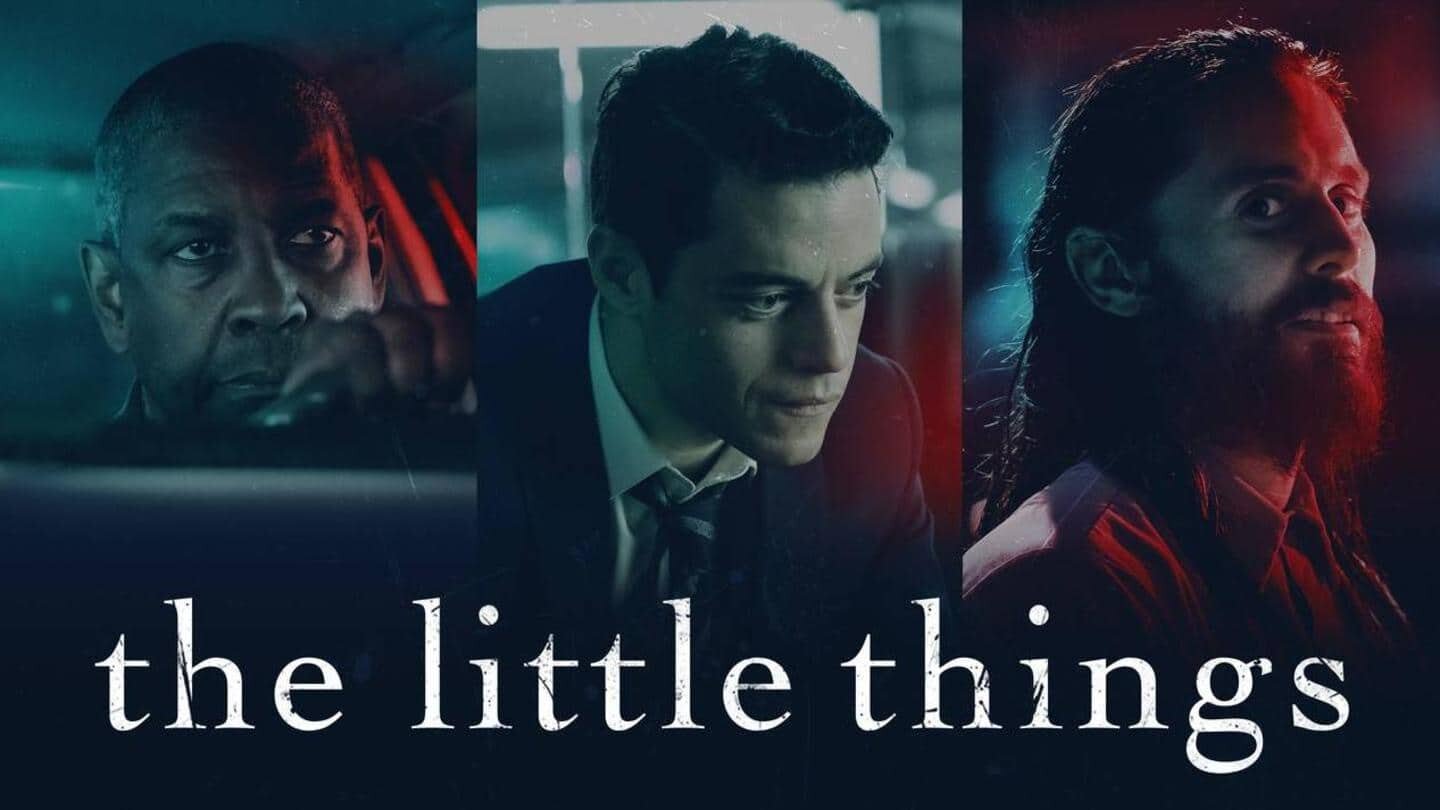· Tea Dimitrova · Reviews · 4 min read
The Little Things: Exploring the Archetypal Journey of Detective and Criminal

“The Little Things” is a movie loosely based on real-life events. Like its title suggests, the viewer must pay attention to every little detail to find the murderer, to solve the mystery. Nevertheless, we are left with a confusing and even infuriating ending, and we are left to interpret the characters’ deeds and motives.
The movie stars Rami Malek (Baxter), Denzel Washington (Deke) as the detectives, and Jared Leto (Sparma) as the presumed criminal. As Deke and Jimmy interrogate Sparma, it becomes apparent that he’s playing with them and finds the whole situation amusing. However, it is not made too obvious, and various tiny pieces of evidence are tossed around to keep you questioning things until every character falls under suspicion.
As Deke says: “it’s the little things that rip you apart, it’s the little things that get you caught.”
We could see Sparma as the alter ego of Baxter. In many scripts and movies, the protagonist is connected to the antagonist as part of the bad traits that remain in the field of the protagonist’s unconscious.
The most striking example of self-indulgence is Robert Louis Stevenson’s “The Strange Case of Dr. Jekyll and Mr. Hyde.” The detective and neo-noir genres are connected mainly through crime but also through the relationship between the perpetrator and the detective/spy.
That is why in the spy genre, particularly in the James Bond series, we often see a similar example, when the villain tells Agent 007 that they are both alike — just from different ideological systems.
Interestingly, the melancholy that worries Sherlock Holmes and only leaves him when he is busy with his cases can be seen as a psychological and depressive state in Denzel Washington’s character from “The Little Things.”
The images he sees on the victims’ wall, his inability to sleep at night, his nervousness, and, at the same time, his 100% concentration in the cases are very similar to the state of Sherlock Holmes.
The detective merges with the mystery, and then he looks relatively healthy, but as the case is solved, he falls into melancholy again.
The characters of Rami Malek and Denzel Washington can be likened to Dr. Watson and Sherlock Holmes, respectively.
In the same way, Denzel Washington holds the unique gift of deciphering cases like Holmes, and Rami Malek is the more moderate and humanly logical Dr. Watson.
On a deeper archetypal level, the film “The Little Things” can also be linked to the Odyssey and its protagonist, Odysseus.
The culturologist Joseph Campbell notes three stages in the hero’s journey — departure, initiation, and return — described in detail in his book “The Hero with a Thousand Faces.”
Just as Odysseus left Ithaca to endure war and 20 years of wandering before finally returning wiser, Denzel Washington’s character leaves the quiet life of Bakersfield for LA, faces his trials, and returns changed.
And just as returning to Ithaca, Odysseus saves not only his kingdom but also his son Telemachus, Denzel Washington’s character performs paternal functions in the narrative, protecting Rami Malek from physical and moral death.
The strong bond between Odysseus and Telemachus — their common war against Penelope’s suitors — mirrors Denzel Washington’s complicated past, his divorce, and his strict secrecy about the accidental killing he committed.
He looks down on the young detective’s troubles with condescension and paternal care. They are connected not only by professional respect but by something deeper: shared experiences that could become fatal for Rami Malek’s character.
Denzel Washington feels obligated to help Baxter for another reason. When the young detective kills Sparma, Deke realizes that Baxter may be headed for the same tragic path — divorce, depression, dismissal.
Deke fears he was the one who spurred Baxter into seeing Sparma as guilty. That’s why he can’t leave Baxter to justice or to chance.
Ironically, Sparma’s words to the young detective come true at the end of the film:
“You know, you and I are a lot alike. In another lifetime, we could be friends. Isn’t that crazy?”